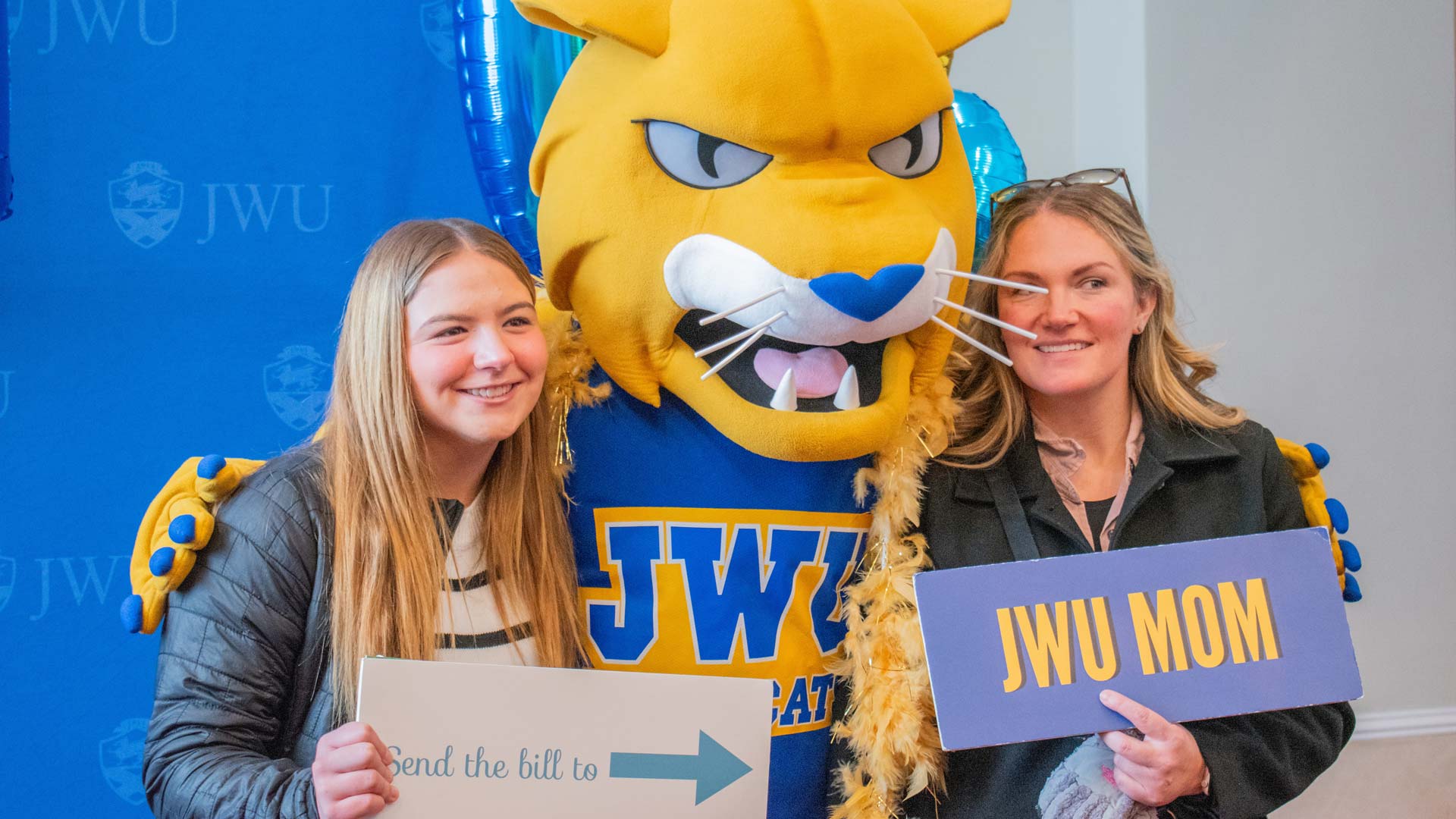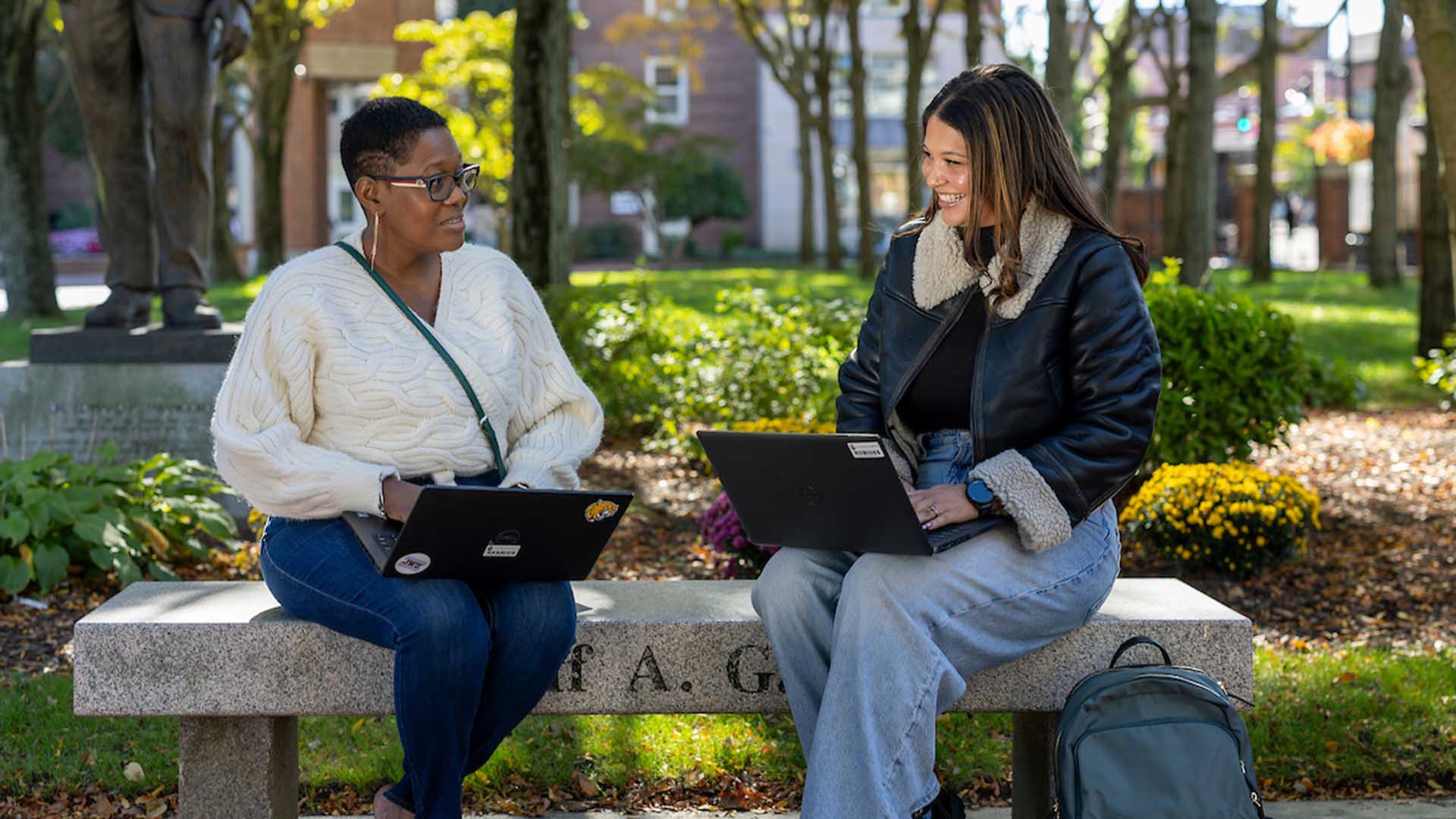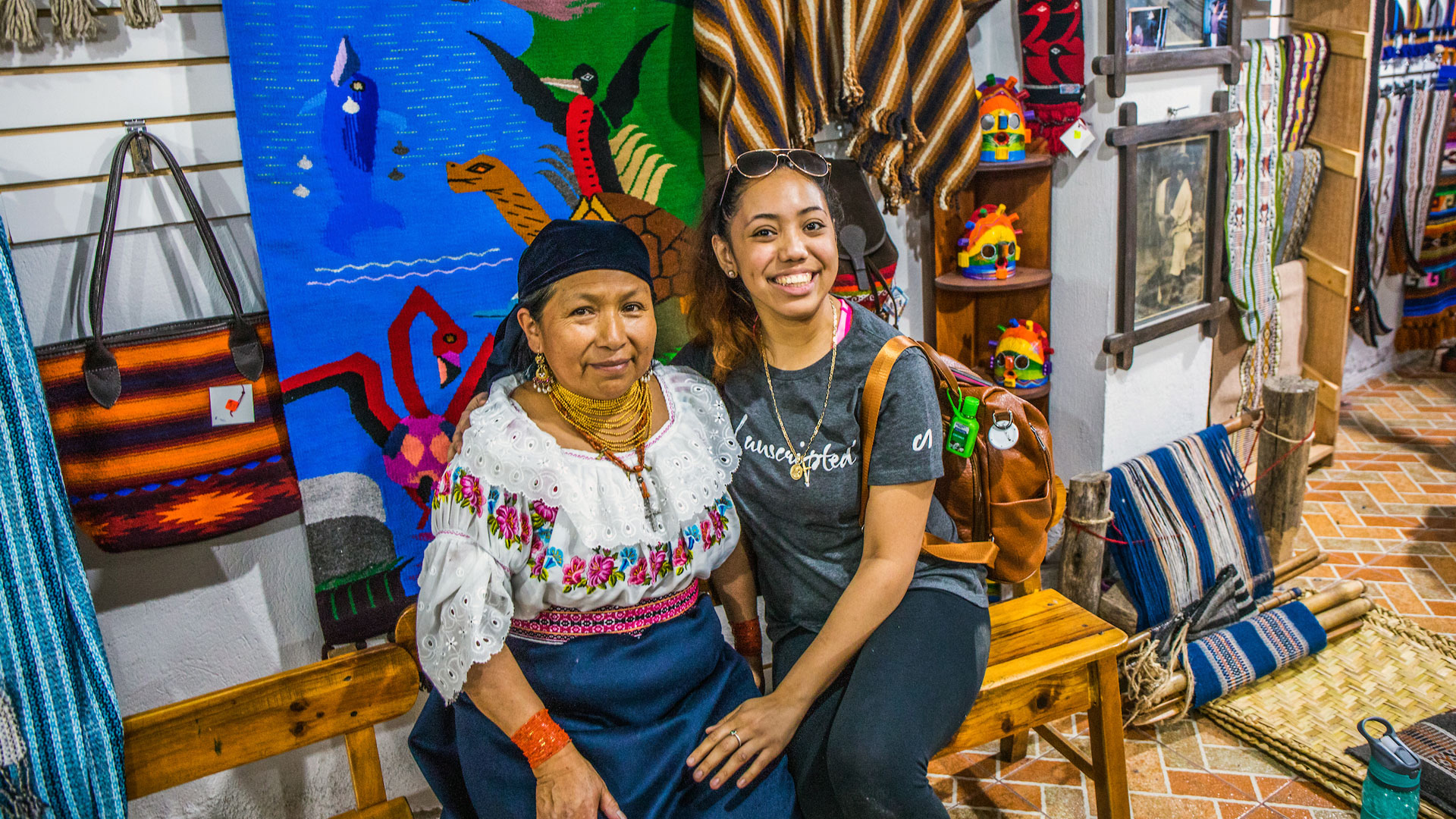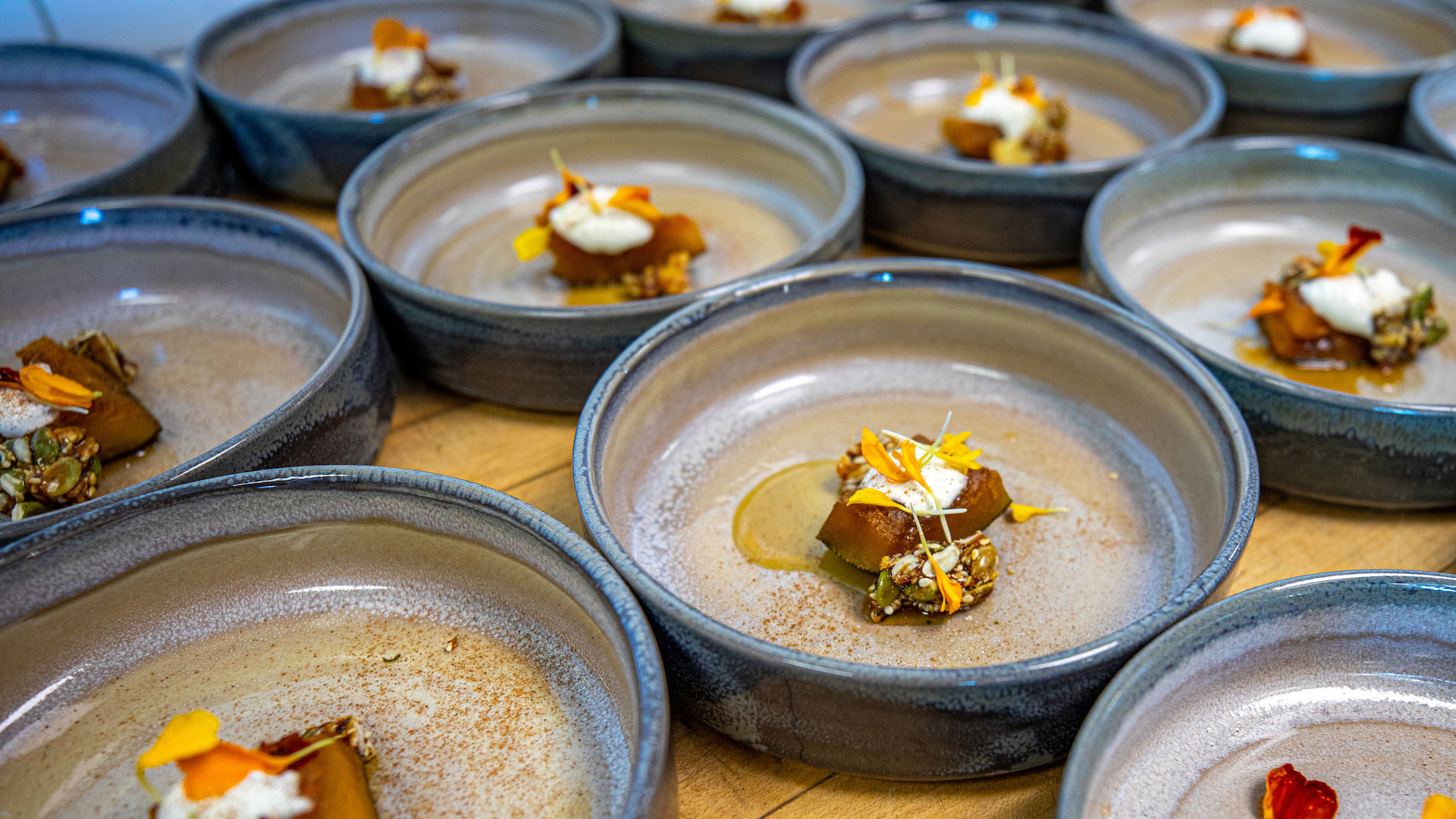Nina Tandon: Building with Biology
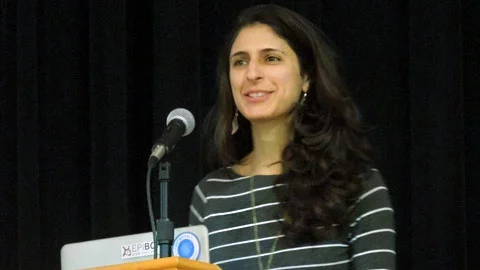
“Close your eyes and imagine a world where…bridges repair themselves and batteries are alive,” Nina Tandon told the Johnson & Wales students that filled the Pepsi Forum on April 22. “That world exists right now.”
The bridges she’s referring to aren’t made of concrete and steel, but of human cells and DNA, and the batteries are human hearts. To Tandon, the human body is an intricate renewable resource, not just a summation of interchangeable parts. “I think of cells as living Legos,” she said with an enthusiastic and infectious smile.
In addition to the many other hats she wears (author, professor, professional speaker), Tandon is the CEO and co-founder of EpiBone, a Harlem-based bone reconstruction company that allows patients to “grow their own bone” using their own stem cells in a 3-step process.
First the EpiBone team extracts adult stem cells from the patient and uses CT scans to create a 3D model of their bone defect. This 3D image is then used to design a patient-specific graft and bioreactor, where the bone “grows” for 3 weeks. At the end of the maturation period the team has an anatomically precise piece of bone that Tandon excitedly refers to as a “living medical device."
Tandon’s love of science is palpable, not only when she’s talking about her own company's breakthroughs, but about what those developments mean for a multitude of other industries. Tissue engineered models could revolutionize the current drug testing platform, she argued. They not only allow for individualized testing, but could make animal and human trials unnecessary.
Tandon also showcased a number of other exciting projects that are using biology in a variety of interesting and unexpected ways. Suzanne Lee is using microbial cellulose to produce clothing-essentially growing her own fabric. Mitchell Joachim and his team at Terreform ONE are working to advance ecological design and are currently developing a way to grow a house out of 100% living nutrients, primarily native trees. Modern Meadow is exploring new ways to create sustainable animal materials and cultured animal products that require no slaughter. “Biology is creeping into every industry,” Tandon said. "It is in all of our fields whether we realize it or not.”
At the end of her presentation, Tandon offered students words of life advice, encouraging them to remain curious and honest, and to make time for their hobbies. In a post-talk Q&A session, she dove deeper into the details of the bone growing process, her experiences as a start-up CEO and teacher, and how her life-long love of science drove her career.
